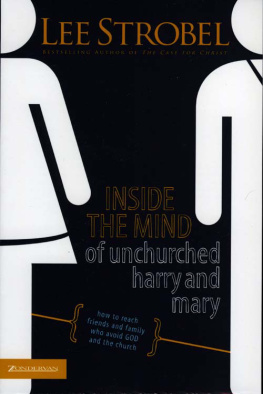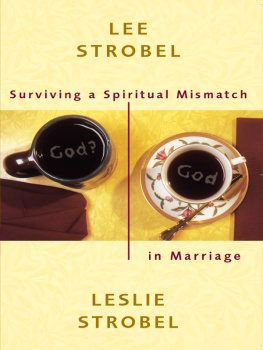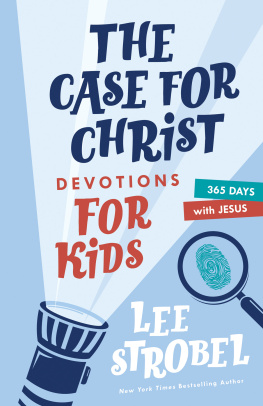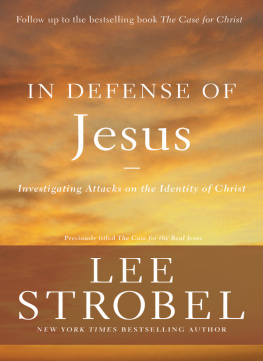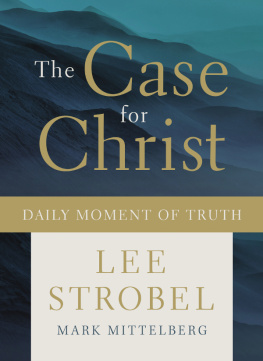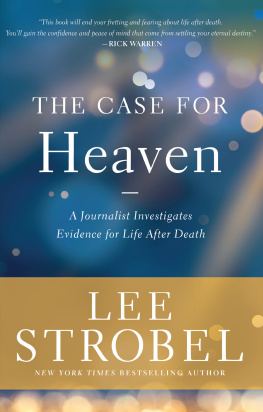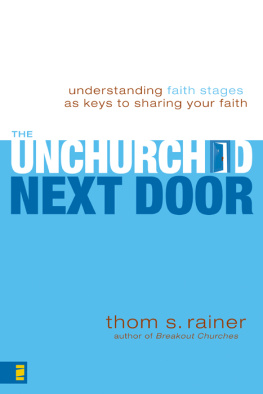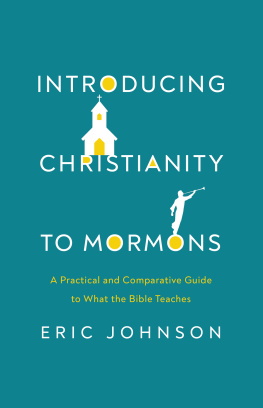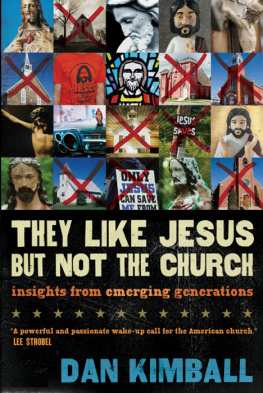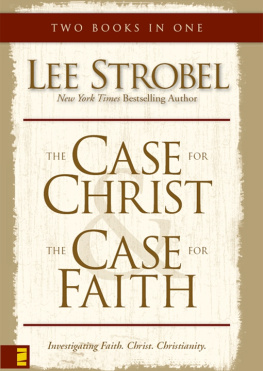Lee Strobel is a modern-day miracle. His life, like the apostle Pauls, is a tall trophy of Gods graceand no one is quicker to set the record straight on that point than Lee himself.
Lee was the kind of man that the safe, self-absorbed, traditional church rails against. Competitive, profane, witty, opportunistic, and thoroughly pagan, Lee was the type of person that many pastors warn the sheep to steer clear of if they want to keep their wool white.
But Lee, like so many others in our world, had a softness under that protective veneer that made him a wonderful candidate for conversion. He treasures his wife and children; he is a hopelessly curious person; and, most important, he is a sucker for the truth.
Watching Lee come to faith in Christ and seeing the transformation of his values, relationships, and ambitions has been one of the most remarkable acts of God that Ive ever witnessed.
Recently I sat in the congregation of Willow Creek Community Church while Lee gave one of the most compelling cases for the truth of Christianity that I had ever heard in sermon form. My heart was beating out of my chest! I was awestruck by the powerful way that God was using Lee but also overwhelmed by the thought of how many of the old Lee Strobels are living in subdivisions within easy driving distance of churches all over our land. In that private moment I worshiped God for being a part of a local church that not only has a concern for Unchurched Harrys, as we call them at Willow Creek, but has a workable strategy to reach them. Then I yearned for more churches to become intentional about reaching seekers.
Thats what this book is abouthow individual Christians and their churches can strategically penetrate the unchurched culture. Read it at your own risk. Lee is a dangerous communicatorIf you doubt me, read on.
1
INTRODUCING YOU TO UNCHURCHED HARRY AND MARY
My wife, Leslie, and I were celebrating at an Italian restaurant across the street from the University of Missouri. I was set to graduate in a few days, and I had just accepted a job offer: a three-month internship at The Chicago Tribune, with a promise that if I performed well Id get a permanent job as a reporter.
For a journalism junkie who grew up feasting on Chicagos four aggressive daily newspapers, it was a dream come true.
My best friend, Ersin, a Turkish-born student from a Muslim family, joined us for our impromptu party. At one point during the meal, somewhere between the bread sticks and the Neapolitan ice cream, he made an offhand remark about how my internship was certainly a great gift from God.
His comment startled me. During the four years I had known Ersin, religion had virtually never come up as a topic. Wait a second, let me get this straight, I said. Are you telling me that someone as intelligent as youvaledictorian, science whiz, pre-med student and all thatthat you actually believe that God exists? I always figured you were beyond that!
I was incredulous, but it was clear that Ersin was equally astonished. What are you trying to tell met? he said. Are you saying there isnt a God? Are you telling me that someone as intelligent as you doesnt believe in God? Youve got to be kidding! I always assumed that everybody believed in God.
We were both genuinely amazed by each others position. For me, I couldnt believe that a sharp person like Ersin had actually bought into a fairy tale like the existence of an all-powerful, all-knowing Creator of the universe.
Hadnt he learned anything at college? Hadnt Darwin explained that life was merely an accident of evolution? Hadnt Marx established that religion was only a tool used by the powerful to oppress the poor? Hadnt Freud argued convincingly that religious beliefs are empty illusions that grow out of the oldest, strongest and most urgent wishes of mankind, a desire for protection against the dangers of life?
It seemed to me that thinking people just werent the religious type. Oh, they may play the religion game, going to church from time to time because its the socially acceptable thing to do. After all, what better place is there to meet potential business clients?
But deep down inside, they certainly werent convinced that they had a great celestial Father, were they? Lets face it: If people really believed that, theyd be living their lives quite a bit differently.
If you could freeze-frame my attitude toward God, circa 1974, that would be it. Frankly, I thought the idea of God was pretty ridiculous. But then if you were to fast-forward the videotape of my life, zipping past a thirteen-year journalism career, youd come upon an unlikely picture: a once-cynical and stone-hearted newspaperman preaching the Gospel at a large evangelical church.
An unlikely picture but a true reflection of what God has done. Today my life is dedicated to helping irreligious peopledoubters as I once wasdiscover the life-changing and eternity-altering reality of Jesus Christ.
The transition from what I was in that Italian restaurant in Columbia, Missouri, to what I later became at Willow Creek Community Church in suburban Chicago is the story of one modern skeptics journey to faith. And yet in a broader sense, its also a story that parallels the spiritual pilgrimage of many people who have discovered Christ through the ministry of Willow Creek and similar churches.
You see, Willow Creek is a church that is geared for the unchurched. Ever since Bill Hybels and a core of friends started the ministry in a movie theater in 1975, they have focused their efforts on trying to reach non-Christians, whom they have affectionately nicknamed Unchurched Harry and Unchurched Mary.
So who are Harry and Mary?
Harry is the science teacher at the local high school who thinks that all religion is for intellectual weaklings.
Mary is the extroverted neighbor whos perfectly happy without God in her life.
Harry is the foreman at the construction site who uses Jesus name only as a swear word.
Mary is the entrepeneur whos so busy dealing with her success that she doesnt have time for spiritual matters.
Harry is the businessman who shies away from Christianity because hes afraid it might cramp the way he conducts his business.
Mary is the university student whose bitter experiences with her dad have poisoned her attitude toward the idea of a heavenly Father.
Harry is the husband who thinks that his wifes faith is a waste of time.
Mary is the dentist who does believe that Jesus Christ is the Son of God, but she keeps putting off any kind of personal response to him.
Harry is the auto mechanic who goes to church religiouslyevery Christmas and Easter, whether he needs it or not.
Mary is the accountant who takes her children to church so that they can get some moral training, and though she sits through the services herself, in her heart shes really unchurched.
Harry is the lawyer who spends his Sunday mornings leisurely reading the newspaper, or playing eighteen holes of golf at the country cluband he chafes at the idea that he should feel guilty about it.
Mary is the government bureaucrat who was turned off to God by an early church experience that left her convinced that Christianity is at best boring and irrelevant, and at worst, a scam to bilk the naive.
Although this book is written from a male perspective, almost all of the advice will be useful in bringing the Gospel to women who have ignored or rejected God. So when I say Harry in this book, I am also saying, Mary, since the basic principles apply to women as well as to men.
Over the years since I became a Christian, Ive been kidded that Im the quintessential Unchurched Harry. While there have been a lot of others, its true that I did fit Unchurched Harrys profile. And maybe you know someone who does, too.

